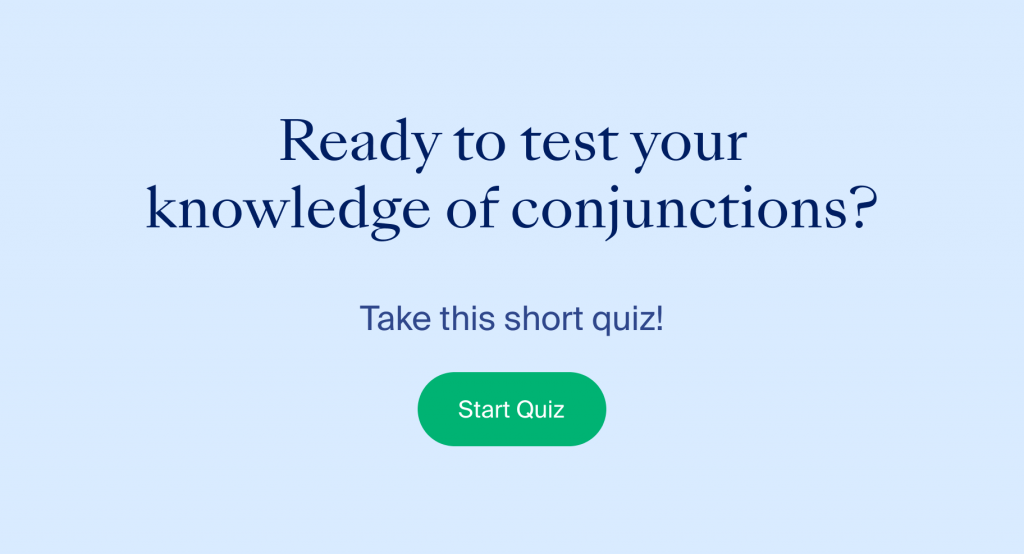Even if you’re not sure what conjunctions are, you probably use them all the time. They’re vital to most sentence types, after all.
It thus pays to know how different conjunctions work. And to help with this, we’ve prepared a guide on how to use them in your written work.
Coordinating Conjunctions
Coordinating conjunctions connect words, phrases, or clauses in a sentence. There are seven of these in English, which you can remember with the acronym “FANBOYS” as follows:
- For (e.g., I will go now, for I have an urgent mission.)
- And (e.g., I am a spy and a lover.)
- Nor (e.g., I cannot fail, nor do I want to.)
- But (e.g., I want to stay at the casino, but I need to catch the villain.)
- Or (e.g., My options are victory or death!)
- Yet (e.g., The life of an international spy is dangerous yet exciting.)
- So (e.g., I fight the bad guys so you don’t have to.)
All the terms above can be used to join two independent clauses (i.e., clauses that would work as sentences by themselves). In this case, a comma is usually given before the conjunction. For instance:
However, you don’t need a comma to join two short, simple sentences:
Nor do you need one when joining two words or phrases within a clause:
And you can use a coordinating conjunction at the start of a sentence:
Some people say it is wrong to start a sentence like this. But using a conjunction at the start of a sentence now and then can help writing flow.
Find this useful?
Subscribe to our newsletter and get writing tips from our editors straight to your inbox.
Subordinating Conjunctions
Subordinating conjunctions connect independent clauses and dependent clauses. They indicate the relationship between clauses. For example:
Here, we use the subordinating conjunction “because” to introduce a reason (i.e., being a good spy) for the main clause (i.e., being hated by the bad guys). Subordinating conjunctions have various meanings. Other examples include “although,” “before,” “unless,” and “while.”
Correlative Conjunctions
Correlative conjunctions are pairs of words that join similar parts of a sentence. The most common of these include:
- Either… or… (e.g., We either need a plan or a lot of luck.)
- Neither… nor… (e.g., Neither the villain nor his henchmen can stop me!)
- Both… and… (e.g., I am outstanding at both spying and drinking martinis.)
- Not only… but also… (e.g., I am not only a great spy, but also a keen gardener.)
Note that the terms connected by correlative conjunctions here are of the same type (i.e., noun + noun or verb + verb). This ensures grammatical parallelism (i.e., it keeps different parts of a sentence in balance).
Conjunctive Adverbs
Finally, we have conjunctive adverbs. These aren’t conjunctions, but they link sentences in a similar way. For example, the terms “however” and “therefore” allow us to show how two clauses or sentences are related:
These provide an alternative to standard conjunctions if you need to vary the terms in your work. Just make sure you pick the right one for what you want to express! And, when in doubt, you can always ask a proofreader for help.




